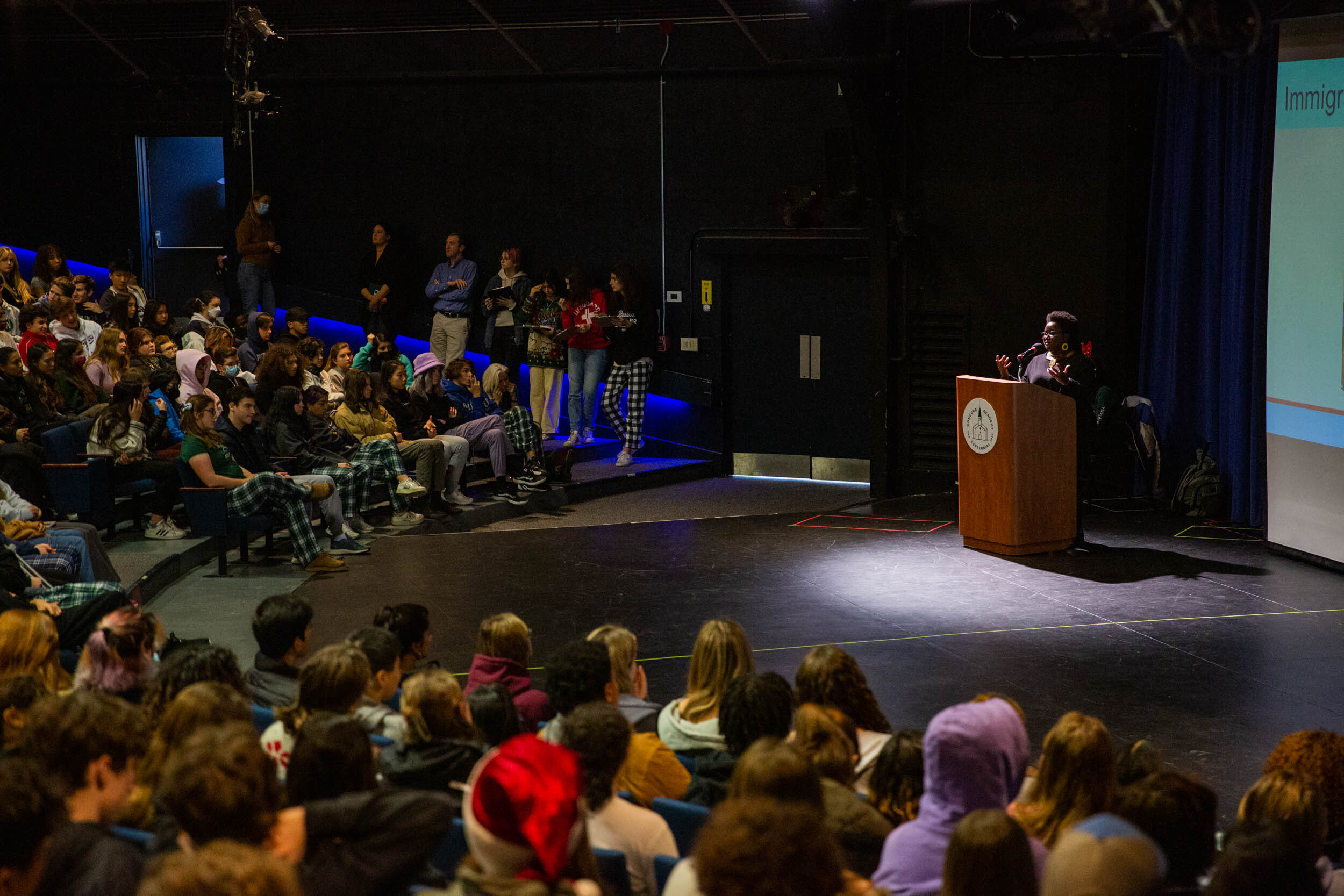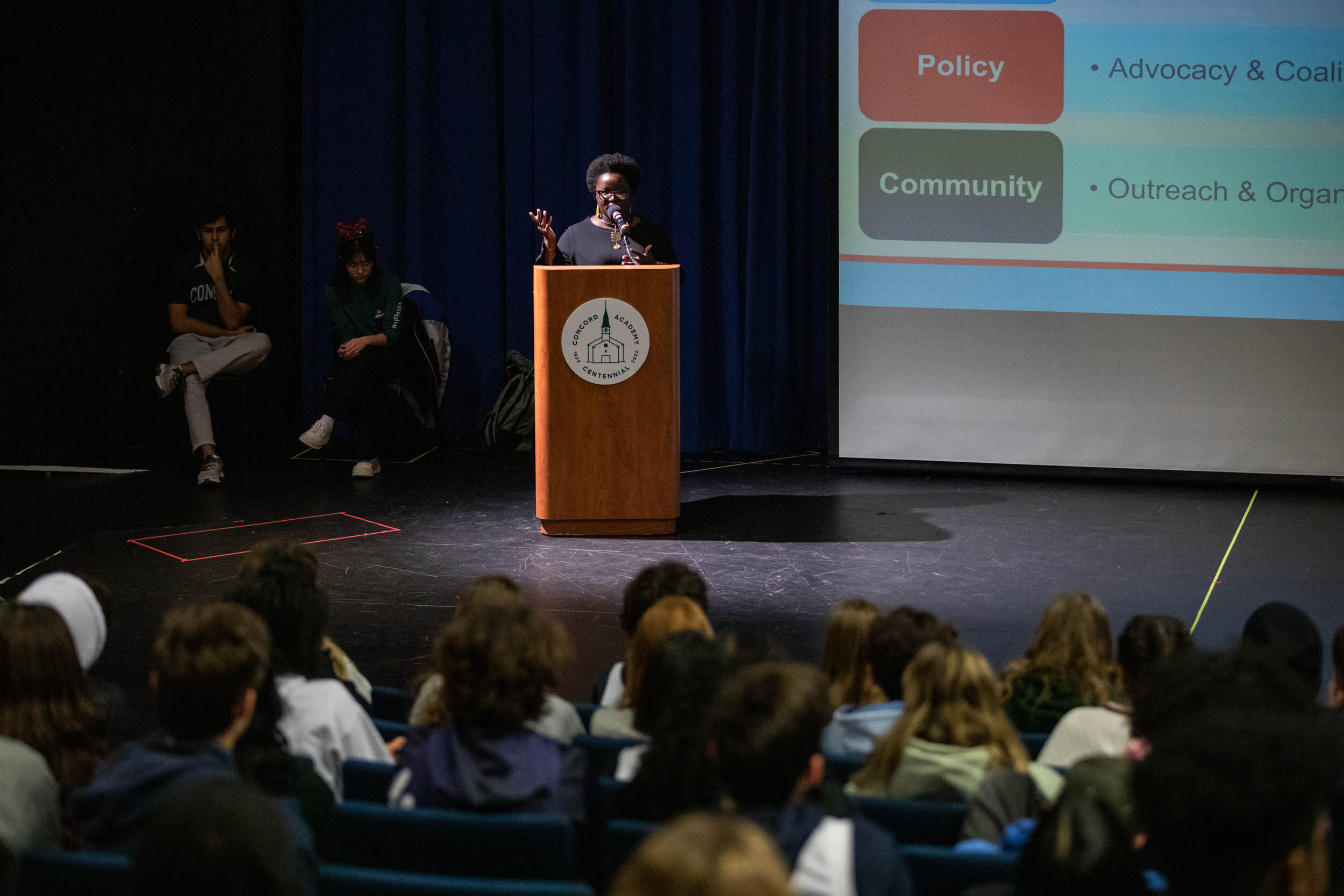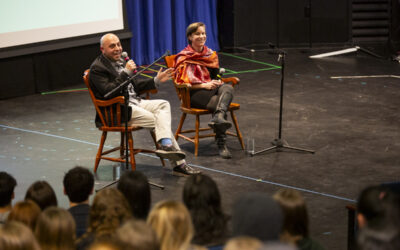
The speaker CA’s student Medical Club brought to campus on December 9 was in high school when she first got interested in policy work. Lorraine Anyango, a health justice organizer with Health Care For All, Massachusettts (HCFA), said her experience with a grassroots organization that empowered youth advocates shaped her desire to build a career around working on political issues, but from the “people side, where I could allow people to speak for themselves and change their own communities.”
HCFA, a Boston-based policy and advocacy nonprofit, takes a three-pronged approach to promoting health care access and equity: direct service, including a consumer helpline offering assistance in several languages; policy, advocacy, and coalition-building; and community outreach and organizing. That community arm is Anyango’s area. “The people power we build is what helps us push the advocacy work,” she said.
In her assembly at CA, she discussed the significant influx of immigrants to Massachusetts in recent years and months, most of them from Brazil, the Afghan migrant crisis, and Haiti. She shared the three biggest issues they face: affordable housing, language barriers, and health care access. Working with partner organizations, HCFA is both educating individuals about what services are available to them and advocating for the expansion of immigrant services.
In Massachusetts, immigrants have the right to access health care, and compared with the majority of U.S. states, the Commonwealth offers them more health care coverage options. As Anyango detailed, though providers aren’t legally allowed to share immigration status, fear of the government is a major obstacle for many immigrants. And the complexities of the state and private insurance system are difficult to navigate. For example, undocumented immigrants can access health care only at certain community health centers, not private hospitals. “Just because it’s accessible does not mean it’s equitable,” Anyango said.
During a Q&A period, one student asked how HCFA is building trust within immigrant communities. The process is one of building relationships with community organizations, Anyango answered—demonstrating dependability as an ally and getting known by word of mouth. “We don’t assume we have their trust,” she said. “We have to earn it.”
Students interested in getting involved with immigrant health care were invited to join the CA student Medical Club, which is partnering with HCFA throughout the current legislative session. According to one of its student co-heads, the group is starting a campaign to “change policy on immigrant health care, with health care for all.” Anyango met with club members after the assembly.
“Even if you’re too young to vote,” she advised, “you can learn to be an advocate for others in your communities who may be unable or too scared to advocate for themselves.”



